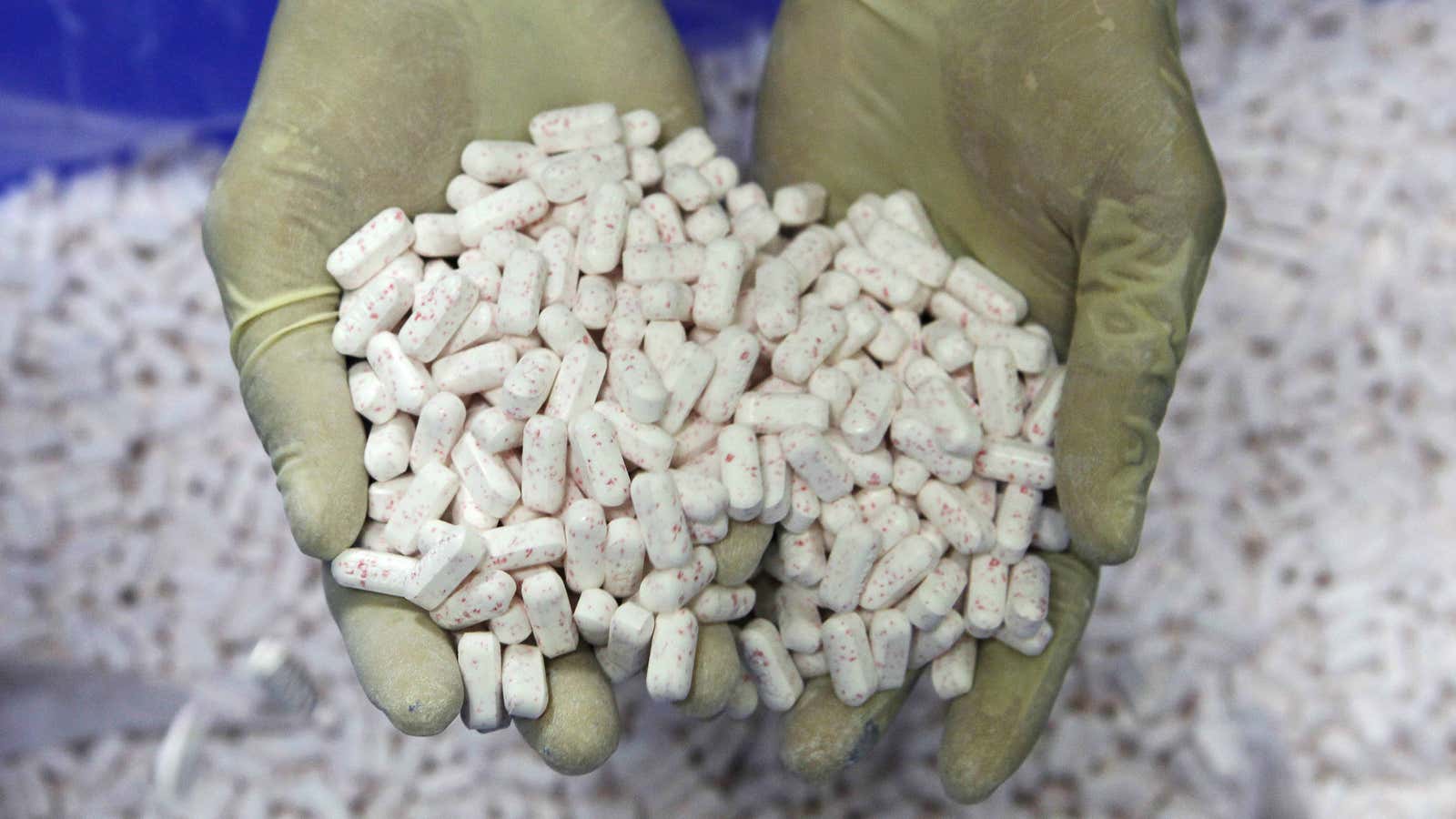Let’s face it, the world is filled with jerks. You’re probably a bit of a jerk, some of the time. Maybe you don’t recycle when you’re not being watched, or you’re trying to pretend the global refugee crisis isn’t happening, or you saw an old classmate on the street the other day but you were exhausted from a 10-hour workday and the easiest thing was to look the other way and act like you didn’t see them. So if we’re all so prone to being jerks, and if the world is slowly falling apart as a result, then shouldn’t we be open to a drug that makes us at least a tiny bit more moral?
That’s the debate in a growing field of philosophy that questions whether, seeing as we already have smart drugs, we shouldn’t have moral drugs, too.
It may sound unnerving, but Brian Earp, research associate at the Oxford Centre for Neuroethics, points out there are cases where a pharmaceutical that can drive moral improvement makes perfect sense.
“Imagine a psychopath who doesn’t have the ability to deal with other people’s pain and, because of that, is more likely than others to commit violent crime,” he says. If we could treat psychopaths to make them feel more empathy, then surely that would be worthwhile. The same is true for those who experience blinding rage, and do terrible things in the heat of their anger.
But what about more widespread, nuanced moral alterations? Two philosophers, Julian Savulescu and Ingmar Persson, have argued that moral enhancement isn’t just beneficial, but essential, in today’s world. Earp lays out their case: “Our moral psychology, our instincts about how we should behave, were adapted in an environment we no longer live in,” he says. We now have the technological potential to wreak massive harm through, for example, a passive refusal to counter climate change. ”Their [Savulescu and Persson’s] view is we have to find a way to enhance the moral character of humanity if we’re going to live up to the challenge of not incurring disastrous consequences,” he adds.
Do we really want to play with morals?
Morality is an intensely personal, human characteristic, and the idea of throwing in an artificial modifier into the mix could seem jarring. But though Earp says it’s important to carefully consider the implications and application of moral enhancement, he believes increasing morality is “a good goal almost by definition.” If morality is a good thing, then “pursuing moral improvement is something we should all value.”
Earp dismisses the critique that perfectly following moral laws would be a threat to our free will. He points out that Aristotle advocated practicing good behavior until it became a natural virtue. “I see it as an expression of my free will, my desire and efforts to become a moral person,” he says. “It only makes sense that I would try to automate some of those habits and tendencies so that I’m not constantly facing a moral crisis every time I walk down the street.”
The practicalities of moral enhancement
Of course, it’s not like we can flip a switch and implement moral enhancement tomorrow. Though researchers are beginning to study the effects of drugs on morally relevant temperaments, there’s no definitive evidence yet of any drug, implant, or gene-alteration that would clearly and predictably make people more moral.
Then there’s question of what, exactly, it means to be moral. For example, though empathy is a good thing, too much empathy can make people act immorally. As Earp points out in his co-authored chapter of a forthcoming book on moral neuroethics, empathy can lead us to make biased moral choices, such as donating money to a young girl with cancer rather than a more anonymous cause that could have a far larger benefit.
But though the fine details of morality may be controversial, Earp believes it is possible to create some broad artificial improvements. Such enhancements will become reality in a matter of years, rather than decades, he says, and there’s even reason to believe some moral drugs are already in use.
“For hundreds or even thousands of years, traditional societies have used psychotropic substances to catalyze moral learning to help children transform into morally mature adults,” he says. Indigenous Amazon tribes, for example, use Ayahuasca to enhance moral learning. There’s long been a taboo on researching hallucinogenic drugs, but Earp says scientists are slowly starting to research the potential positive effects. So there’s now research on how psilocybin, the key ingredient in magic mushrooms, could lead to longterm moral enhancement.
Then there’s one moral drug you’ve almost definitely tried yourself—it likely makes you more honest but less cautious, and possibly less moral overall. “Is it possible to take substances that affect our moral behavior right now? Absolutely. Alcohol is an example of a drug that affects moral behavior,” Earp says.
Moral neuroenhancement isn’t some far off futuristic possibility, he believes, but simply a matter of further studying the existing drugs that affect our morality. “We have the drugs already available,” he says. “It’s just a matter of in what ways are they used and when.”
